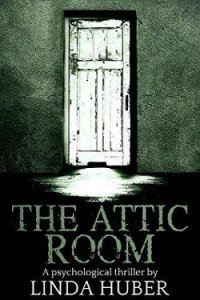Dead in the Water - Tickler Peter (книги онлайн без регистрации TXT) 📗
Her right hand homed in on one of her favourite books, about the Pre-Raphaelites. She took it over to the table where the two of them always ate and opened it up. It fell open where she knew it would — Ophelia floating face-upwards in the river, singing with apparent serenity shortly before she was dragged down to her doom. ‘Her clothes spread wide,’ as Shakespeare recorded it, ‘her garments, heavy with their drink, pull’d the poor wretch from her melodious lay to muddy death.’ Rankin mouthed the words as she had mouthed them so often before, but neither Shakespeare’s words nor Millais’s painting held her as they usually did.
What dragged at her like Ophelia’s garments was the innocuous-looking brown envelope lying between the pages of the book and the three incriminating photographs which she knew lay inside it. She wished she had destroyed them as she had promised Paul she would. If she had done that, she could have pretended to herself that they had never existed — or at least that she had never known anything about them. If only!
She slipped her right hand inside the envelope and pulled out the photographs. They looked no better after a good slug of alcohol than they had when she had so unsuspectingly opened them in the office. She could destroy them now, she told herself. It wasn’t too late. She didn’t have a shredder here at home and there was no open fire or wood-burner in their twenty-first century apartment, but a pair of her mother’s pinking shears would quickly reduce them to a pile of indecipherable and unrecoverable paper shreds. Except that she had seen on some TV drama that there were people who were experts at putting shredded paper back together. She guessed it was a bit like doing a jigsaw puzzle, but without a picture to guide you.
There was a noise — or rather a series of noises all too familiar to Doreen Rankin: a heavy thump as her mother swung herself heavily out of bed, a shuffling of feet, the bang of a door. It was the first of her mother’s frequent nocturnal trips. She took another couple of sips of her gin and tonic and listened, waiting for the noises that would signal that her mother had returned to her bed. She was convinced that sooner or later she would fall and crack her skull on a piece of furniture or snap her hip.
She sipped again at her glass and realised there was only ice at the bottom of it. She poured herself another drink, with a bit more gin this time, and dropped in some extra ice as compensation. She returned to the sofa, glass in one hand and photographs in the other, and slumped down. She took a swig and belched.
Alcohol was supposed to confuse and befuddle the mind. But that wasn’t how it felt to Doreen Rankin. Quite the opposite. Things were becoming clearer with every mouthful. She couldn’t possibly destroy the photographs. They were evidence. She ought to give them to the police. Except that doing so would be a second betrayal of Paul. Unless of course he had killed Janice, in which case helping the police was her duty. But having an affair did not make Paul Atkinson a killer. He was a charmer, yes. Doreen was pretty darned sure that he had cheated on his wife several times on business trips to Europe and the States. But that didn’t mean he would have killed his wife if she had found out. What would have been the point? To judge from the way he treated her and the angry phone calls she herself had received from Janice, they weren’t exactly a match made in heaven.
She took another sip and discovered she was down to the ice again. It was amazing how quickly a nice G & T disappeared. She eased herself up, made her way over to the table again and poured herself another refill. This was the last one tonight, she promised herself. Definitely the last. She took a gulp and looked again at one of the photographs. It was the one where Paul had his hand on the woman’s fat bottom and she was whispering something in his ear. Doreen picked up the next one. It was, she now realised, taken almost immediately after the first (Paul’s hand was still on the bitch’s bottom), only in this shot Paul’s face was visible and there was a terrible leering grin spread right across it. She must have been whispering something quite disgusting into his ear. Doreen took another gulp from her glass and felt the anger rise. It was the woman’s fault! Paul was an attractive but weak man, easy prey for the unscrupulous woman. She knew that. She had always known that. Well, she wasn’t going play into the bitch’s hands. She was going to find the pinking shears and go to work on the photographs. And when she had got a nice pile of shredded paper, she’d burn them just to be sure. And later on, in a few days’ time, when Paul had recovered from Janice’s death, she would tell him what she had done. He would be so pleased.
Doreen stood up and moved unsteadily over to the fireplace. She took the lid off a small Chinese jar and extricated a packet of cigarettes and a box of matches. She lit up and blew a wreath of smoke up towards the ceiling, watching it as it expanded and then disappeared. Her mother wouldn’t approve, but she didn’t care. What harm could a cigarette or two do?
Chapter 7
Mullen slept soundly that night. The day had sucked the energy out of him and although he went to bed with the events and discoveries of the last twelve hours spinning in his head, his body’s need for rest and recuperation had the final say. He woke once to go to the toilet, but apart from that he was conscious of nothing until his mobile phone woke him. He rolled over, picked it up and checked the caller display; ‘Unknown.’ Most likely some wretched cold caller. He killed the call.
He had barely lain back down before his mobile rang again. The same ‘Unknown’ was displayed. He groaned. His gut reaction was to ignore the call again and turn his mobile off, but something stopped him. Did these automated dialling systems dial you again immediately? He thought not. More likely they did so the next day or the next week. Which meant, he realised, that this was very likely a human being calling, not a salesperson. Hiding your number when you made a call was easy enough to do if you knew how. The phone continued to ring and Mullen reluctantly swung his legs over the side of the mattress and sat up. He pressed the answer icon, lifted the mobile to his ear and listened. There was silence, except for the muffled sound of someone breathing.
“Who is it?”
“Is that the Good Samaritan?”
“What?” Even if Mullen hadn’t been half asleep, the reference would have confused him.
“It’s a dangerous role.”
This time Mullen said nothing. He knew when someone was threatening him. He knew too — or thought he did — that if he kept quiet and avoided rising to the bait then the chances were that the caller would say more.
“Did you hear me?” There was a crack of irritation in the voice, even though it sounded artificial. Mullen was reminded of Stephen Hawking.
“Are you trying to frighten me?”
“It’s not you who should be frightened. It’s your friends.”
It was like being kicked in the stomach. Mullen felt the bile rise and tasted the bitterness in his throat. He opened his mouth and forced himself to say something.
“What do you mean?” Keep him talking, he told himself. And listen, Mullen, really listen — to his stupid voice, to what he says and how he says it, for any background noise.
“Unless you stop,” the man continued, “one of your friends will pay the price.”
And then the line went dead.
* * *
By the time Mullen had showered, dressed in clean clothes, eaten some muesli and downed a mug of black coffee, he felt almost ready to face the day. His headache of the night before was a distant memory, though anxiety was beating its own drum inside his head.




